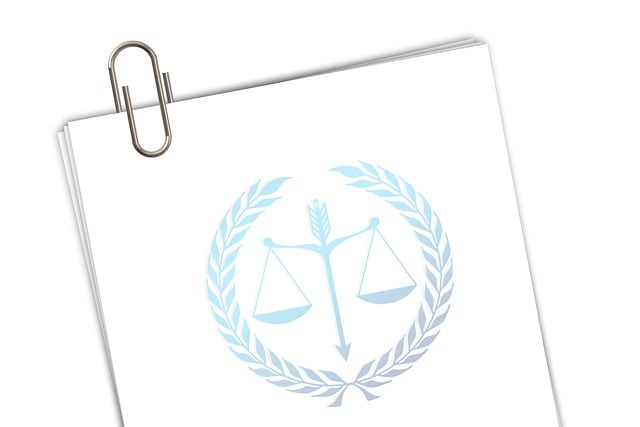Whistleblower Protection Laws (WPLs) are crucial for encouraging employees in regulated industries like financial services to report illegal activities or misconduct, facilitating robust Financial Services Regulatory Enforcement Actions. WPLs empower individuals with knowledge of fraudulent schemes, foster market integrity, and enable legal action against those who retaliate. These laws, through sophisticated legal strategies, lead to monetary fines, sanctions, and criminal charges for perpetrators, promoting accountability and transparency in the financial sector. Regulatory enforcement actions set a zero-tolerance precedent for white-collar crimes, driving significant changes in corporate governance and risk management, ultimately enhancing consumer trust.
“Whistleblower protection lawsuits are a powerful tool for exposing corporate misconduct and ensuring accountability. In today’s complex financial landscape, understanding whistleblower laws is paramount, especially in the highly regulated financial sector. This article delves into the intricacies of these protections, exploring how individuals can trigger enforcement actions and the strategic legal approaches involved. We analyze the impact of regulatory enforcement on various industries, highlighting the significance of whistleblower revelations in shaping corporate governance and market integrity.”
- Understanding Whistleblower Protection Laws
- Financial Sector: Triggering Enforcement Actions
- Legal Strategies for Whistleblower Protection Suits
- Impact of Regulatory Enforcement on Industries
Understanding Whistleblower Protection Laws

Whistleblower Protection Laws (WPLs) are a crucial set of legal safeguards designed to encourage employees within regulated industries, such as financial services, to come forward with information about suspected illegal activities or misconduct. These laws play a pivotal role in facilitating robust Regulatory Enforcement Actions by providing a safe and protected avenue for whistleblowers to report issues without fear of retaliation.
In the context of Financial Services, WPLs are instrumental in addressing white collar and economic crimes. They empower individuals with knowledge of fraudulent schemes or unethical practices to act as watchdogs, ultimately contributing to stronger market integrity. Through these laws, whistleblowers can pursue legal action against those who seek to silence them or retaliate for their disclosures, ensuring that companies and individuals face consequences for non-compliance. This, in turn, fosters a culture of accountability and encourages the pursuit of winning challenging defense verdicts in cases involving white collar defense strategies.
Financial Sector: Triggering Enforcement Actions

In the financial sector, whistleblower protection lawsuits play a pivotal role in triggering Regulatory Enforcement Actions. When employees within financial institutions, such as banks and insurance companies, uncover instances of fraud, corruption, or unethical practices, they can take legal action to expose these wrongdoings. These whistleblowers often possess crucial insights into white collar defense strategies employed by their respective businesses, making them valuable assets in ensuring compliance with Financial Services Regulatory Enforcement Actions.
By coming forward and providing detailed information, whistleblowers initiate a process that encompasses all stages of the investigative and enforcement process. Their disclosures can lead to significant legal consequences for the guilty parties, including monetary fines, regulatory sanctions, and even criminal charges. This mechanism encourages employees to take a proactive stance against malfeasance within their organizations, fostering a culture of accountability and transparency in the financial landscape.
Legal Strategies for Whistleblower Protection Suits

Whistleblower protection lawsuits involve intricate legal strategies tailored to navigate the complexities of regulatory enforcement actions within the financial services sector. One key approach is to leverage protective orders and non-retaliation provisions under relevant whistleblower laws, such as those offered by the Securities and Exchange Commission (SEC) or the Financial Industry Regulatory Authority (FINRA). These measures aim to safeguard whistleblowers from potential employer retaliation, a common concern in these cases.
Moreover, effective legal strategies often focus on building a compelling narrative around the whistleblower’s disclosure, emphasizing public interest and the significance of exposing fraudulent or unethical practices. This includes meticulous documentation, witness preparation, and expert testimony to support the case. By combining robust legal arguments with strong evidence, whistleblowers can achieve extraordinary results, such as substantial financial settlements or even jury trials, ensuring their protection and holding wrongdoers accountable in Financial Services Regulatory Enforcement Actions.
Impact of Regulatory Enforcement on Industries

The impact of regulatory enforcement actions, particularly in the realm of Financial Services, can be profound and transformative for various industries. When regulatory bodies take stringent measures against entities involved in white-collar and economic crimes, it sets a precedent and sends a clear message that such activities will not be tolerated. This results in a ripple effect across sectors, driving significant changes in corporate governance, risk management strategies, and ethical practices.
For instance, strict enforcement of Financial Services Regulatory Enforcement Actions can lead to organizations reevaluating their internal controls and compliance programs. Companies strive to achieve extraordinary results by implementing robust measures to prevent and detect potential wrongdoings, ensuring adherence to legal and ethical standards. This proactive approach not only minimizes the risk of future violations but also fosters a culture of accountability and transparency, ultimately strengthening industry integrity and consumer trust.
Whistleblower Protection Lawsuits play a pivotal role in upholding integrity within the financial sector by enabling individuals to expose fraudulent activities without fear of retaliation. Understanding these laws, leveraging strategic legal approaches, and recognizing their impact on regulatory enforcement actions are essential for both protecting whistleblowers and driving positive change across industries. By fostering a culture that values ethical reporting, these lawsuits ultimately contribute to stronger market transparency and consumer protection.






